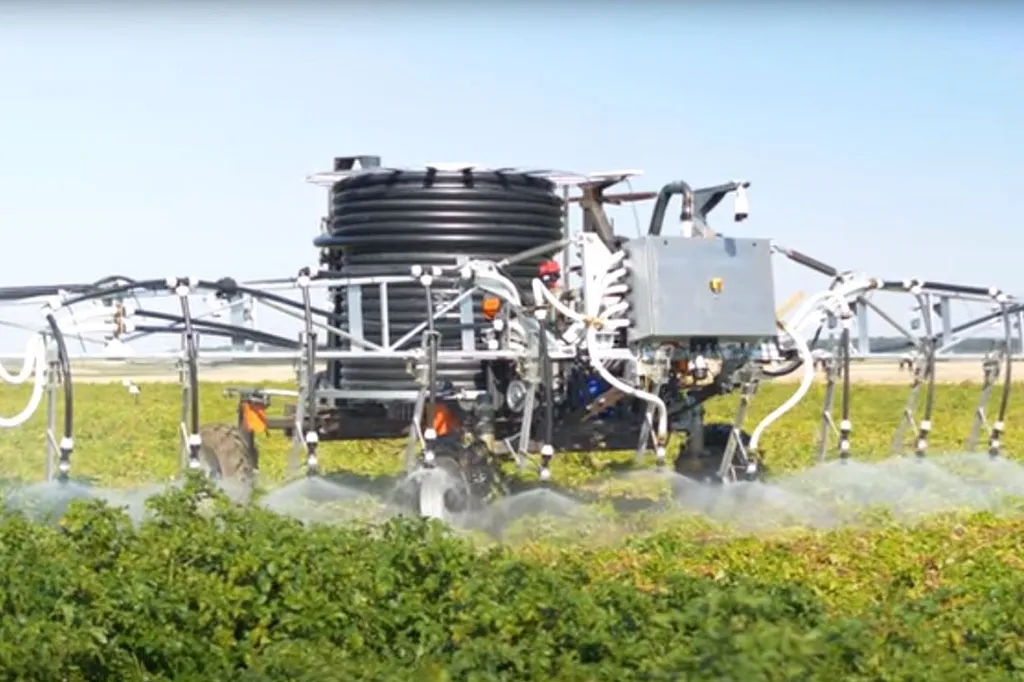In the heart of Egypt’s Aswan University, a groundbreaking study is reshaping the future of irrigation, promising to revolutionize water management in agriculture. Led by Nabil Elkaoud, a researcher affiliated with the Yellow River Delta Intelligent Agricultural Machinery Equipment Industry Research Academy in China, this innovative work focuses on enhancing the efficiency of sprinkler irrigation systems, which have long been plagued by significant water losses.
Elkaoud’s research, published in the journal ‘Eng’ (translated to English as ‘Engineering’), introduces a novel approach to precision irrigation using a gun sprinkler robot. The study addresses the critical need for improved water management in agriculture, a sector that accounts for a substantial portion of global water usage. By optimizing sprinkler irrigation, Elkaoud’s work could have far-reaching implications for water conservation and agricultural productivity.
The study involved fabricating a sprinkler robot and conducting experiments with varying nozzle sizes, gun heights, and forward speeds. The results were promising, with the highest water application efficiency reaching 82.5% using a 14 mm nozzle. “The key to our success lies in the precise control of the sprinkler robot,” Elkaoud explained. “By adjusting the nozzle size, gun height, and forward speed, we can minimize water losses and maximize efficiency.”
The implications of this research extend beyond the agricultural sector. Efficient water management is crucial for the energy sector, where water is often used in cooling processes and other operations. By reducing water consumption in agriculture, more water can be allocated to energy production, enhancing overall resource efficiency.
Elkaoud’s work also highlights the potential of variable rate technology and sensor-based irrigation control. “In the future, we envision a farming landscape where irrigation systems are equipped with advanced sensors and variable rate technology,” Elkaoud said. “This will allow for even greater precision and efficiency, tailoring water application to the specific needs of each plant.”
The study’s findings could pave the way for the development of smart farming systems that integrate advanced robotics and sensor technology. These systems could transform agriculture, making it more sustainable and productive. As the world grapples with water scarcity and climate change, innovations like Elkaoud’s sprinkler robot offer a beacon of hope, demonstrating the power of technology to address some of our most pressing challenges.
In the words of Elkaoud, “The future of agriculture lies in precision and efficiency. By harnessing the power of technology, we can create a more sustainable and productive farming landscape.” This research not only shapes the future of irrigation but also sets a precedent for innovative solutions in water management and agricultural technology.

